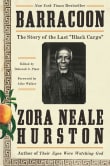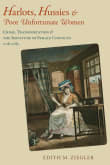The Slave Ship

Book description
The slave ship was the instrument of history's greatest forced migration and a key to the origins and growth of global capitalism, yet much of its history remains unknown. Marcus Rediker uncovers the extraordinary human drama that played out on this world-changing vessel. Drawing on thirty years of maritime research,…
Why read it?
3 authors picked The Slave Ship as one of their favorite books. Why do they recommend it?

In 2007, I was writing a biography of Liverpool merchant William Davenport, who had made his fortune via the slave trade.
As I researched Davenport’s dry ledgers and letterbooks, I was fortunate to have Marcus Rediker’s exceptional The Slave Ship to hand. Pushing back against the “violence of abstraction” inherent to the accounts of slavers like Davenport, Rediker’s book exposed the horrors of the Middle Passage in unflinching detail.
His book is also filled with powerful individual stories of captives, captains, and crewmen that demonstrated to me the importance of writing “human histories” of the slave trade.
From Nicholas' list on how the Atlantic slave trade operated.

Both incredibly fascinating and horrifying, this book found its start in the author’s desire to write about sailing ships. I’m interested in socio-political history and I’ve found that there’s nothing more disturbing or terrifying than looking deep into the world’s past. It’s a great way to be informed and to pepper fiction with interesting nonfiction details. (And to be horrified.) Our imaginations can not outpace what people have actually done. In the foreword, Reddiker describes researching the subject and finding information about the ships that carried human cargo for chattel slavery. There’s a personal anecdote as the author digs further…
From Errick's list on history to thrill, disturb, and intrigue.

One of the main goals of the slave trade was to erase the identities of its human cargoes and reduce them to an undifferentiated mass of commodified “negroes.” I was really impressed by the way that Marcus Rediker’s The Slave Ship examines how this “strange and potent combination of war machine, mobile prison, and factory” attempted to achieve that wicked goal—and how the slaves themselves resisted with everything they had. Written by one of the pre-eminent historians of maritime social history, The Slave Ship is, in my opinion, a must-read for those seeking to understand history “from below the…
From Cian's list on maritime social history.
Want books like The Slave Ship?
Our community of 11,000+ authors has personally recommended 100 books like The Slave Ship.
Browse books like The Slave Ship


























